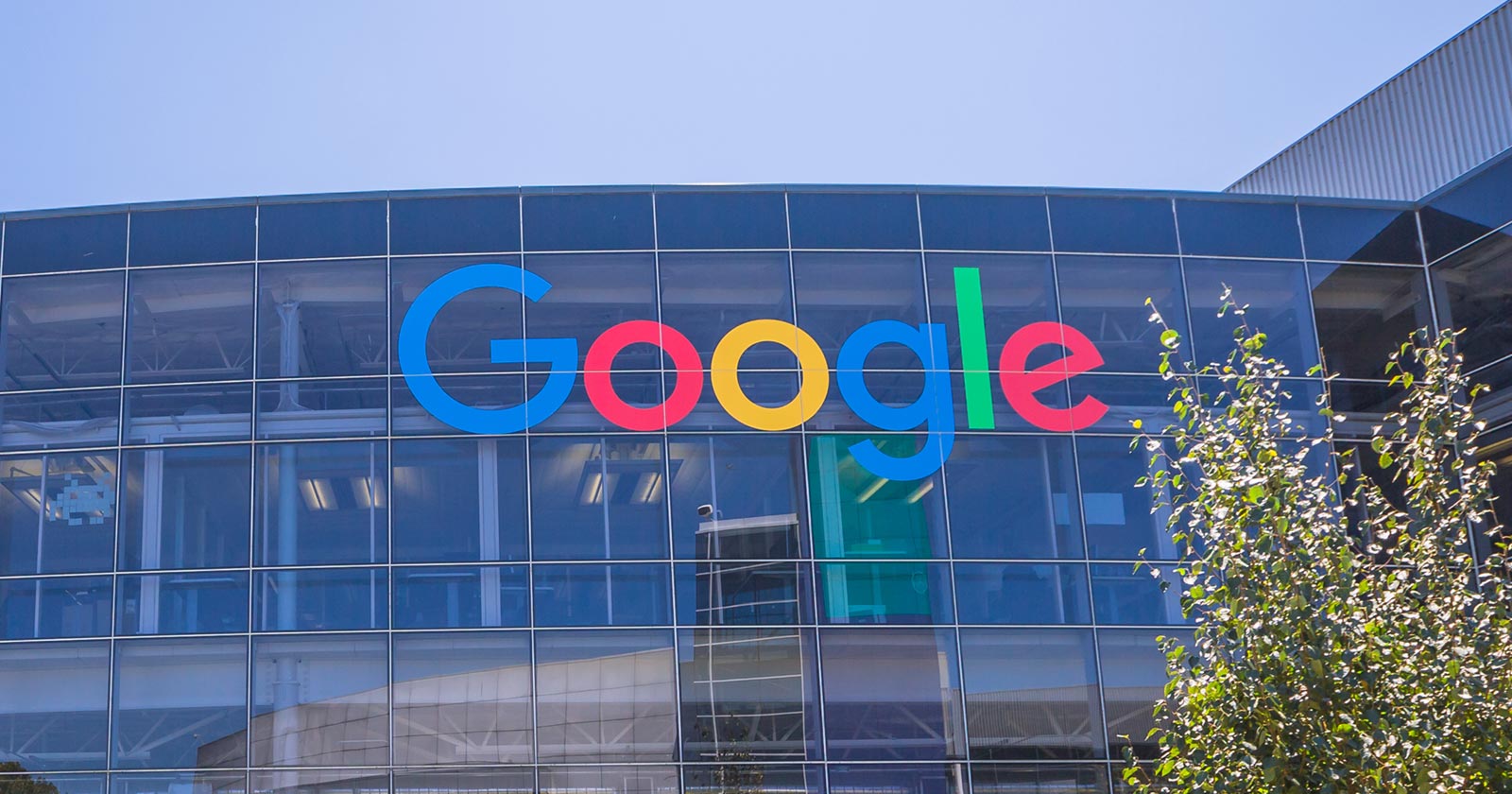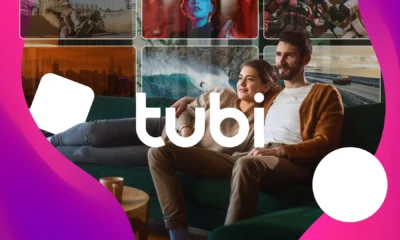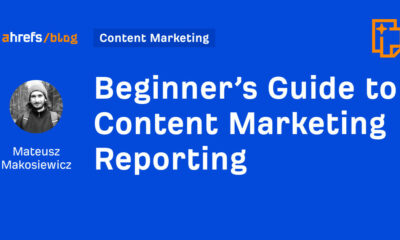SEO
The Definitive Guide To Podcast Intros
Podcast intros are an important quality of a successful podcast.
The right intro sets the podcast on a path to success.
These seven tips will help your podcast build an audience and retain it:
- Hook the listeners fast.
- Make every second of the podcast intro count.
- A good podcast intro builds audience retention.
- Test podcast intros for audience retention.
- Three things a podcast intro must communicate.
- Podcast intro builds loyalty.
- Where to get music for a podcast.
Let’s dig into each one and see how you can put it work for your podcast.
1. Hook The Listeners Fast
Erin Sparks of Edge of the Web Radio podcast says that there is a subtle but important value in the podcast intro when it comes to what he calls, “click browsing.”
Erin suggests that the intro functions like a hook – to grab the listener’s attention and immediately intrigue them.
He shares this insight:
“The audio ‘hook’ is important to podcast click browsing. Walking through a podcast app, people will click and listen to 7-10 seconds to hear if they ‘feel’ the show.
Much different than any other medium.”
Chris Brogan of Making the Brand podcast agrees that a podcast intro should be short.
He shares these insights on the qualities of a useful podcast intro:
“I’m a huge fan of brief. Once you hear it more than twice, it’s boring to everyone.
An intro should set the mental stage for what’s coming up.
Choose music and words that emulate the show.”
2. Make Every Second Of The Podcast Intro Count
Jorge Hermida, Program Director at WMR.FM and Cannabis Radio Podcasts, observes that it’s important to give listeners a reason to stick around for the podcast but to do it in the shortest amount of time possible.
He says there is absolutely no time to waste within your podcast intro so it’s super important to literally make every second count.
He shares:
“Podcast listeners, just like anybody else, have a short attention span.
You have to give listeners a reason to listen to your content within the first 30 seconds.
Whether you create a cold opener or you run down what you’re going to be talking about on the program, you need to satisfy that listener immediately.
Create the intro as if every listener has a short attention span because in my professional experience, they will either stay and listen to your show, or they’ll drop off and find another show to listen to.”
3. Podcast Intro Builds Audience Retention
Azeem Ahmad of the Azeem Digital SEO podcast shares that a good podcast intro will help maintain audience retention, as well as encourage engagement and loyalty.
This is an element of conversion theory, where even seemingly trivial elements can encourage or discourage the action we are looking for.
A classic example is a PPC arbitrage marketer who maximizes the number of sales for every click.
Affiliate PPC marketers succeed or go out of business fast depending on how well they convert every visitor.
This person discovered that detecting the mobile device and adding an “iPhone friendly” or “Android friendly” badge increased their conversion rates by a measurable rate.
The follow-up insight Azeem suggests is similar.
He said that a podcast intro has the same effect of encouraging a user to click and stay for the podcast or to leave.
And for that reason, it’s important to view the intro as a configurable asset that can be used to improve audience retention.
Azeem shares how a podcast intro is important for retention rates and engagement:
“People will get bored with repetition, and regardless of your podcast format – the idea is to engage the listener.
If you lose them within the first 30 seconds, you will very likely see a drop in retention rate and engaged listeners.”
4. Test Podcast Intros For Audience Retention
Azeem next shares that a way to improve retention and engagement is to experiment with new intros and outros.
He shares this tip:
“As a host you should change this up sometimes.
Customizing the intro every time is basically an option to test for what works the best.
For example, you could test asking people to subscribe in the intro vs. the outro for a few episodes and see which drives more growth.”
5. Three Things A Podcast Intro Must Communicate
Sparks offers useful information about what should be communicated in a podcast introduction.
He shares how the introduction should communicate the “What’s in it for me?” proposition to the listener.
Figuring out the tried-and-true principle of answering the question of “What’s in it for me?” is a great way to think about how to create a podcast intro that is useful for the listener.
So, it makes sense to apply that approach to podcast intros so that a listener is reminded of why they are there, which could be to become better at what they do, to catch up on industry news, to be entertained, etc.
Here is what Sparks shares:
“A good intro provides:
- A promise to the listener in the first five to seven seconds (a transaction of knowledge communicating what they are going to get).
- Sonic branding.
- Credibility, contextual reference to subject matter expertise.”
6. Podcast Intro Builds Loyalty
Jim Hedger, the co-host of the popular Webcology SEO podcast, suggests that the podcast intro helps to build a sense of familiarity and ownership of a space.
I’ve noticed that people tend to feel a sense of ownership in a website they enjoy, perhaps because the site might be a part of their self-identity as a baker, sportsperson, or whatever the topic is.
Ever walk into a favorite restaurant and immediately receive a feeling of comfort or anticipation?
It’s a sense of ownership of an experience, that this experience is yours and it’s yours yet again.
Hedger says that a podcast intro can have a similar effect, to bring a sense of comfort and anticipation that one feels in physical spaces that one feels loyal and connected to.
He observes:
“I once read that people aren’t loyal to restaurants as much as they are loyal to spaces they feel comfortable being in.
The same can be said for podcasts.
Like radio, podcasts are a theater of the mind. Your intro is the breath that first forms the space you, your guests, and the audience will create together.
Podcasts are incredibly intimate. I think you need to feel love for your audience and deeply respect the topic and your introduction is your first chance to establish that.
A host’s job is to help the audience develop a zone in which they and the host are virtually in the same place.”
7. Where To Get Music For A Podcast Intro
Something to keep in mind is that any music used should be licensed.
There is an idea that it’s okay to use just a little bit of someone else’s music, but that might not be the case.
And if that’s the direction you are moving in, then it may be prudent to check with an attorney first.
The podcasting professionals consulted for this article all agree that it’s important to purchase a license for the right to any music used within a podcast.
Everyone agrees that it’s best to license royalty-free podcast intro music because this safeguards against copyright infringement claims.
Hermida shares:
“Our music is licensed, and most other podcasts most likely use some kind of licensed music from other licensed music providers for some original music that’s not prone to any copyright issues.
It doesn’t really matter where the music comes from, except that I would always recommend to make sure you use music that you are allowed to use and that license to use the music is documented and can be proven.”
Sparks also recommends paying for a license to use music:
“We have a number of music licenses that we have used over the years.
We highly recommend reviewing different sound repositories and utilizing them to create that sonic brand.
Places to license music are Envato Elements, Epidemic Sound, and the like.
We also have a continual license with our deep voice announcer, our voice over talent.
That should also be something to consider when you’re developing a long-term show.”
Brogan recommends:
“Epidemic Sound works fine. Buy a license. “
Always read the license when choosing a digital music asset in order to be aware of what you can and can’t do with the music and for how long you are entitled to use it.
- Epidemic Sound – several of the podcasters mentioned Epidemic Sound as a good place to purchase a license for music.
- Envato Elements is a source for high-quality licensed, royalty-free music suitable for a podcast intro.
- Shutterstock Music – Shutterstock is known for its stock photography library, but they also offer royalty-free music specifically for podcasts. A license that’s appropriate for use in a podcast costs $49.
- Music Bakery offers royalty-free music where you pay for it once and can use it anywhere, but be sure to read the license agreement to know exactly what you are paying for.
- InstantMusicNow offers digital downloads starting at $4.95.
- Adobe Stock Music Library – Adobe offers royalty-free music that can be used in multiple projects.
Podcast Intros Are Important
At this point, it should be clear that a seemingly trivial thing like a podcast intro is actually part of the foundation of a successful podcast.
Clearly, the content of the podcast is the most important quality of a podcast.
Yet, as important as the content is, it’s the podcast intro that sets the stage and makes listeners feel they have arrived at their happy place, while also communicating what is in it for the listener, which encourages them to stick around for the content.
More Resources:
Featured Image: Alex from the Rock/Shutterstock
!function(f,b,e,v,n,t,s)
{if(f.fbq)return;n=f.fbq=function(){n.callMethod?
n.callMethod.apply(n,arguments):n.queue.push(arguments)};
if(!f._fbq)f._fbq=n;n.push=n;n.loaded=!0;n.version=’2.0′;
n.queue=[];t=b.createElement(e);t.async=!0;
t.src=v;s=b.getElementsByTagName(e)[0];
s.parentNode.insertBefore(t,s)}(window,document,’script’,
‘https://connect.facebook.net/en_US/fbevents.js’);
if( typeof sopp !== “undefined” && sopp === ‘yes’ ){
fbq(‘dataProcessingOptions’, [‘LDU’], 1, 1000);
}else{
fbq(‘dataProcessingOptions’, []);
}
fbq(‘init’, ‘1321385257908563’);
fbq(‘track’, ‘PageView’);
fbq(‘trackSingle’, ‘1321385257908563’, ‘ViewContent’, {
content_name: ‘definitive-guide-podcast-intros’,
content_category: ‘content creation trends’
});
SEO
Google On Hyphens In Domain Names

Google’s John Mueller answered a question on Reddit about why people don’t use hyphens with domains and if there was something to be concerned about that they were missing.
Domain Names With Hyphens For SEO
I’ve been working online for 25 years and I remember when using hyphens in domains was something that affiliates did for SEO when Google was still influenced by keywords in the domain, URL, and basically keywords anywhere on the webpage. It wasn’t something that everyone did, it was mainly something that was popular with some affiliate marketers.
Another reason for choosing domain names with keywords in them was that site visitors tended to convert at a higher rate because the keywords essentially prequalified the site visitor. I know from experience how useful two-keyword domains (and one word domain names) are for conversions, as long as they didn’t have hyphens in them.
A consideration that caused hyphenated domain names to fall out of favor is that they have an untrustworthy appearance and that can work against conversion rates because trustworthiness is an important factor for conversions.
Lastly, hyphenated domain names look tacky. Why go with tacky when a brandable domain is easier for building trust and conversions?
Domain Name Question Asked On Reddit
This is the question asked on Reddit:
“Why don’t people use a lot of domains with hyphens? Is there something concerning about it? I understand when you tell it out loud people make miss hyphen in search.”
And this is Mueller’s response:
“It used to be that domain names with a lot of hyphens were considered (by users? or by SEOs assuming users would? it’s been a while) to be less serious – since they could imply that you weren’t able to get the domain name with fewer hyphens. Nowadays there are a lot of top-level-domains so it’s less of a thing.
My main recommendation is to pick something for the long run (assuming that’s what you’re aiming for), and not to be overly keyword focused (because life is too short to box yourself into a corner – make good things, course-correct over time, don’t let a domain-name limit what you do online). The web is full of awkward, keyword-focused short-lived low-effort takes made for SEO — make something truly awesome that people will ask for by name. If that takes a hyphen in the name – go for it.”
Pick A Domain Name That Can Grow
Mueller is right about picking a domain name that won’t lock your site into one topic. When a site grows in popularity the natural growth path is to expand the range of topics the site coves. But that’s hard to do when the domain is locked into one rigid keyword phrase. That’s one of the downsides of picking a “Best + keyword + reviews” domain, too. Those domains can’t grow bigger and look tacky, too.
That’s why I’ve always recommended brandable domains that are memorable and encourage trust in some way.
Read the post on Reddit:
Read Mueller’s response here.
Featured Image by Shutterstock/Benny Marty
SEO
Reddit Post Ranks On Google In 5 Minutes

Google’s Danny Sullivan disputed the assertions made in a Reddit discussion that Google is showing a preference for Reddit in the search results. But a Redditor’s example proves that it’s possible for a Reddit post to rank in the top ten of the search results within minutes and to actually improve rankings to position #2 a week later.
Discussion About Google Showing Preference To Reddit
A Redditor (gronetwork) complained that Google is sending so many visitors to Reddit that the server is struggling with the load and shared an example that proved that it can only take minutes for a Reddit post to rank in the top ten.
That post was part of a 79 post Reddit thread where many in the r/SEO subreddit were complaining about Google allegedly giving too much preference to Reddit over legit sites.
The person who did the test (gronetwork) wrote:
“…The website is already cracking (server down, double posts, comments not showing) because there are too many visitors.
…It only takes few minutes (you can test it) for a post on Reddit to appear in the top ten results of Google with keywords related to the post’s title… (while I have to wait months for an article on my site to be referenced). Do the math, the whole world is going to spam here. The loop is completed.”
Reddit Post Ranked Within Minutes
Another Redditor asked if they had tested if it takes “a few minutes” to rank in the top ten and gronetwork answered that they had tested it with a post titled, Google SGE Review.
gronetwork posted:
“Yes, I have created for example a post named “Google SGE Review” previously. After less than 5 minutes it was ranked 8th for Google SGE Review (no quotes). Just after Washingtonpost.com, 6 authoritative SEO websites and Google.com’s overview page for SGE (Search Generative Experience). It is ranked third for SGE Review.”
It’s true, not only does that specific post (Google SGE Review) rank in the top 10, the post started out in position 8 and it actually improved ranking, currently listed beneath the number one result for the search query “SGE Review”.
Screenshot Of Reddit Post That Ranked Within Minutes
Anecdotes Versus Anecdotes
Okay, the above is just one anecdote. But it’s a heck of an anecdote because it proves that it’s possible for a Reddit post to rank within minutes and get stuck in the top of the search results over other possibly more authoritative websites.
hankschrader79 shared that Reddit posts outrank Toyota Tacoma forums for a phrase related to mods for that truck.
Google’s Danny Sullivan responded to that post and the entire discussion to dispute that Reddit is not always prioritized over other forums.
Danny wrote:
“Reddit is not always prioritized over other forums. [super vhs to mac adapter] I did this week, it goes Apple Support Community, MacRumors Forum and further down, there’s Reddit. I also did [kumo cloud not working setup 5ghz] recently (it’s a nightmare) and it was the Netgear community, the SmartThings Community, GreenBuildingAdvisor before Reddit. Related to that was [disable 5g airport] which has Apple Support Community above Reddit. [how to open an 8 track tape] — really, it was the YouTube videos that helped me most, but it’s the Tapeheads community that comes before Reddit.
In your example for [toyota tacoma], I don’t even get Reddit in the top results. I get Toyota, Car & Driver, Wikipedia, Toyota again, three YouTube videos from different creators (not Toyota), Edmunds, a Top Stories unit. No Reddit, which doesn’t really support the notion of always wanting to drive traffic just to Reddit.
If I guess at the more specific query you might have done, maybe [overland mods for toyota tacoma], I get a YouTube video first, then Reddit, then Tacoma World at third — not near the bottom. So yes, Reddit is higher for that query — but it’s not first. It’s also not always first. And sometimes, it’s not even showing at all.”
hankschrader79 conceded that they were generalizing when they wrote that Google always prioritized Reddit. But they also insisted that that didn’t diminish what they said is a fact that Google’s “prioritization” forum content has benefitted Reddit more than actual forums.
Why Is The Reddit Post Ranked So High?
It’s possible that Google “tested” that Reddit post in position 8 within minutes and that user interaction signals indicated to Google’s algorithms that users prefer to see that Reddit post. If that’s the case then it’s not a matter of Google showing preference to Reddit post but rather it’s users that are showing the preference and the algorithm is responding to those preferences.
Nevertheless, an argument can be made that user preferences for Reddit can be a manifestation of Familiarity Bias. Familiarity Bias is when people show a preference for things that are familiar to them. If a person is familiar with a brand because of all the advertising they were exposed to then they may show a bias for the brand products over unfamiliar brands.
Users who are familiar with Reddit may choose Reddit because they don’t know the other sites in the search results or because they have a bias that Google ranks spammy and optimized websites and feel safer reading Reddit.
Google may be picking up on those user interaction signals that indicate a preference and satisfaction with the Reddit results but those results may simply be biases and not an indication that Reddit is trustworthy and authoritative.
Is Reddit Benefiting From A Self-Reinforcing Feedback Loop?
It may very well be that Google’s decision to prioritize user generated content may have started a self-reinforcing pattern that draws users in to Reddit through the search results and because the answers seem plausible those users start to prefer Reddit results. When they’re exposed to more Reddit posts their familiarity bias kicks in and they start to show a preference for Reddit. So what could be happening is that the users and Google’s algorithm are creating a self-reinforcing feedback loop.
Is it possible that Google’s decision to show more user generated content has kicked off a cycle where more users are exposed to Reddit which then feeds back into Google’s algorithm which in turn increases Reddit visibility, regardless of lack of expertise and authoritativeness?
Featured Image by Shutterstock/Kues
SEO
WordPress Releases A Performance Plugin For “Near-Instant Load Times”

WordPress released an official plugin that adds support for a cutting edge technology called speculative loading that can help boost site performance and improve the user experience for site visitors.
Speculative Loading
Rendering means constructing the entire webpage so that it instantly displays (rendering). When your browser downloads the HTML, images, and other resources and puts it together into a webpage, that’s rendering. Prerendering is putting that webpage together (rendering it) in the background.
What this plugin does is to enable the browser to prerender the entire webpage that a user might navigate to next. The plugin does that by anticipating which webpage the user might navigate to based on where they are hovering.
Chrome lists a preference for only prerendering when there is an at least 80% probability of a user navigating to another webpage. The official Chrome support page for prerendering explains:
“Pages should only be prerendered when there is a high probability the page will be loaded by the user. This is why the Chrome address bar prerendering options only happen when there is such a high probability (greater than 80% of the time).
There is also a caveat in that same developer page that prerendering may not happen based on user settings, memory usage and other scenarios (more details below about how analytics handles prerendering).
The Speculative Loading API solves a problem that previous solutions could not because in the past they were simply prefetching resources like JavaScript and CSS but not actually prerendering the entire webpage.
The official WordPress announcement explains it like this:
Introducing the Speculation Rules API
The Speculation Rules API is a new web API that solves the above problems. It allows defining rules to dynamically prefetch and/or prerender URLs of certain structure based on user interaction, in JSON syntax—or in other words, speculatively preload those URLs before the navigation. This API can be used, for example, to prerender any links on a page whenever the user hovers over them.”
The official WordPress page about this new functionality describes it:
“The Speculation Rules API is a new web API… It allows defining rules to dynamically prefetch and/or prerender URLs of certain structure based on user interaction, in JSON syntax—or in other words, speculatively preload those URLs before the navigation.
This API can be used, for example, to prerender any links on a page whenever the user hovers over them. Also, with the Speculation Rules API, “prerender” actually means to prerender the entire page, including running JavaScript. This can lead to near-instant load times once the user clicks on the link as the page would have most likely already been loaded in its entirety. However that is only one of the possible configurations.”
The new WordPress plugin adds support for the Speculation Rules API. The Mozilla developer pages, a great resource for HTML technical understanding describes it like this:
“The Speculation Rules API is designed to improve performance for future navigations. It targets document URLs rather than specific resource files, and so makes sense for multi-page applications (MPAs) rather than single-page applications (SPAs).
The Speculation Rules API provides an alternative to the widely-available <link rel=”prefetch”> feature and is designed to supersede the Chrome-only deprecated <link rel=”prerender”> feature. It provides many improvements over these technologies, along with a more expressive, configurable syntax for specifying which documents should be prefetched or prerendered.”
See also: Are Websites Getting Faster? New Data Reveals Mixed Results
Performance Lab Plugin
The new plugin was developed by the official WordPress performance team which occasionally rolls out new plugins for users to test ahead of possible inclusion into the actual WordPress core. So it’s a good opportunity to be first to try out new performance technologies.
The new WordPress plugin is by default set to prerender “WordPress frontend URLs” which are pages, posts, and archive pages. How it works can be fine-tuned under the settings:
Settings > Reading > Speculative Loading
Browser Compatibility
The Speculative API is supported by Chrome 108 however the specific rules used by the new plugin require Chrome 121 or higher. Chrome 121 was released in early 2024.
Browsers that do not support will simply ignore the plugin and will have no effect on the user experience.
Check out the new Speculative Loading WordPress plugin developed by the official core WordPress performance team.
How Analytics Handles Prerendering
A WordPress developer commented with a question asking how Analytics would handle prerendering and someone else answered that it’s up to the Analytics provider to detect a prerender and not count it as a page load or site visit.
Fortunately both Google Analytics and Google Publisher Tags (GPT) both are able to handle prerenders. The Chrome developers support page has a note about how analytics handles prerendering:
“Google Analytics handles prerender by delaying until activation by default as of September 2023, and Google Publisher Tag (GPT) made a similar change to delay triggering advertisements until activation as of November 2023.”
Possible Conflict With Ad Blocker Extensions
There are a couple things to be aware of about this plugin, aside from the fact that it’s an experimental feature that requires Chrome 121 or higher.
A comment by a WordPress plugin developer that this feature may not work with browsers that are using the uBlock Origin ad blocking browser extension.
Download the plugin:
Speculative Loading Plugin by the WordPress Performance Team
Read the announcement at WordPress
Speculative Loading in WordPress
See also: WordPress, Wix & Squarespace Show Best CWV Rate Of Improvement
-

 SEARCHENGINES6 days ago
SEARCHENGINES6 days agoMore Google March 2024 Core Update Ranking Volatility
-

 PPC6 days ago
PPC6 days agoCompetitor Monitoring: 7 ways to keep watch on the competition
-

 PPC6 days ago
PPC6 days agoA History of Google AdWords and Google Ads: Revolutionizing Digital Advertising & Marketing Since 2000
-

 PPC6 days ago
PPC6 days ago31 Ready-to-Go Mother’s Day Messages for Social Media, Email, & More
-

 WORDPRESS6 days ago
WORDPRESS6 days agoThrive Architect vs Divi vs Elementor
-

 WORDPRESS5 days ago
WORDPRESS5 days agoTurkish startup ikas attracts $20M for its e-commerce platform designed for small businesses
-

 MARKETING5 days ago
MARKETING5 days agoRoundel Media Studio: What to Expect From Target’s New Self-Service Platform
-

 SEARCHENGINES5 days ago
SEARCHENGINES5 days agoGoogle Search Results Can Be Harmful & Dangerous In Some Cases















You must be logged in to post a comment Login